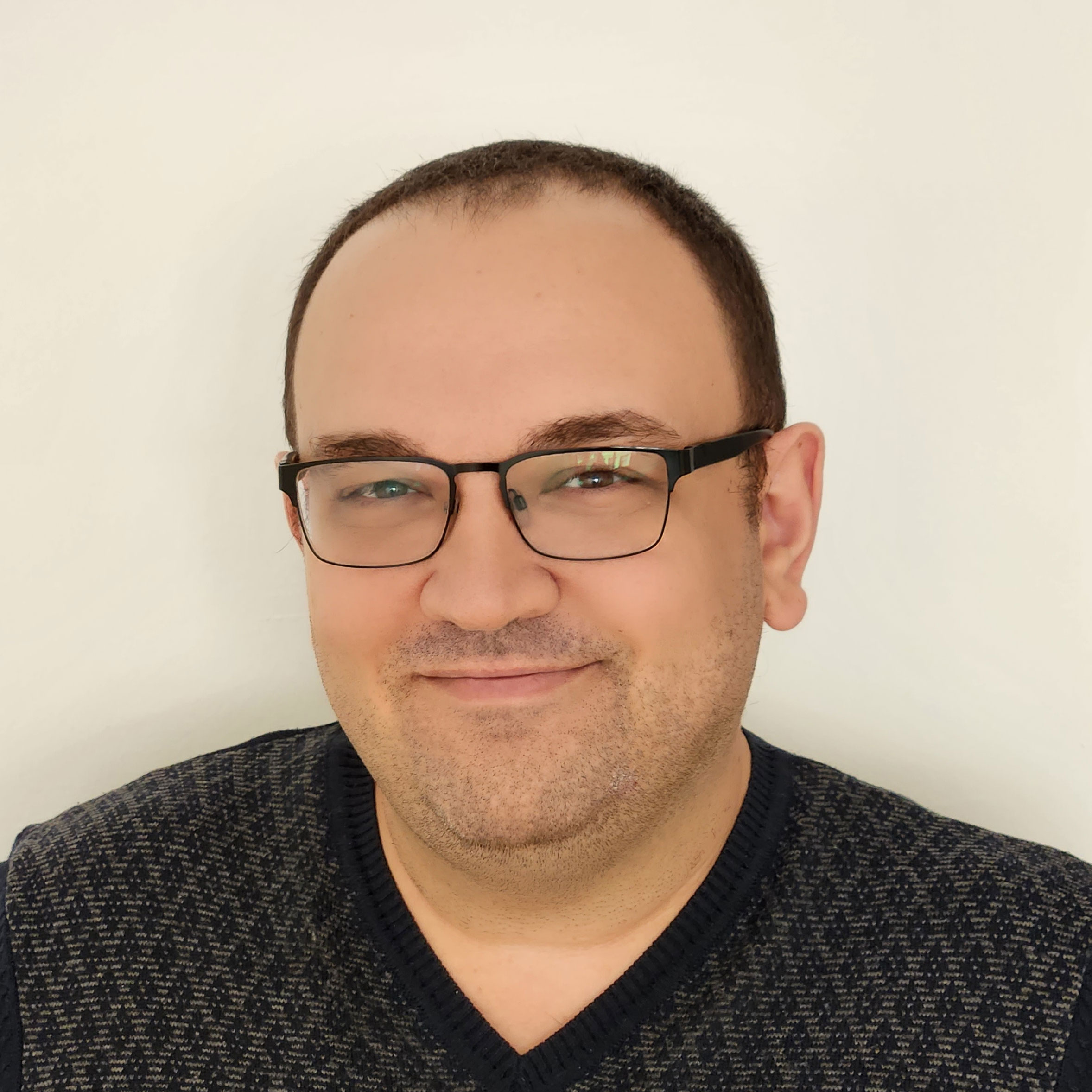
|
ASSISTANT PROFESSOR SERKAN GÖKTUNA Faculty Member |
|
| Office: SB-243 Phone: +90 312 290 2418 Lab website: web2.bilkent.edu.tr/goktunalab E-mail: serkan.goktuna@bilkent.edu.tr |
• Google Scholar profile • LinkedIn profile • PubMed entries • ResearchGate profile |
Biography
Dr. Serkan Göktuna obtained his bachelor’s degree in Molecular Biology and Genetics at Middle East Technical University (2003). Later he obtained his master’s degree in Biological Sciences and Bioengineering at Sabancı University (2005) and his PhD degree in Human Biology at Technical University of Munich (2010). His PhD work with Prof. Florian Greten earned him 3 CellPress publications and expertise in in vivo mouse models of tumorigenesis. Then he moved to Belgium to do Postdoctoral research on IKK-related kinases in colorectal tumorigenesis under Dr. Alain Chariot’s supervision (2010-15). Dr. Göktuna has received numerous scholarships or fellowships during these years (like Fonds Leon Fredericq (FLF) postdoctoral research grant, METU and TÜBİTAK Basic Sciences Scholarship, Sabancı University Graduate Scholarship and Assistantship, TÜBİTAK 2213 doctoral fellowship, WELBIO and FNRS Postdoctoral Fellowships).
In March 2015, he started assistant professorship position in the Department of Molecular Biology and Genetics at Bilkent University. He has currently 11 peer reviewed publications in internationally high ranking journals like Cell, Journal of Experimental Medicine, Cell Reports, Nature Communications, Cell Death and Differentiation, Cancer Research, FEBS Journal and Journal of Immunology. Dr. Göktuna is the recipient of TÜBA GEBİP (2016) and Bilim Akademisi BAGEP (2017) awards as well as TÜBİTAK 2232 installation fellowship (2016-18). Currently, Dr. Göktuna has three TÜBİTAK funded research projects (two ARDEB 1001 and one ARDEB 3501) in which his team is exploring the roles of inflammatory signaling pathways in cancer development and dissemination.
Research
Within solid tumors cancer cells have pivotal roles in orchestrating immune reactions to create an inflammatory microenvironment that favors tumor development. Our previous work (Greten et. 2007, Cell; Schwitalla et al. 2013, Cell, Göktuna et al. 2014, Cell Reports; Chau and Göktuna et al. 2015, Journal of Immunology; Göktuna et al. 2015, to be submitted) had focused on identifying key signaling pathways that regulate cytokine and chemokine signaling to direct inflammatory cell activations in mouse models of colorectal tumorigenesis. Eventually, we identified key mechanisms that regulate interactions of epithelial and immune cells which may enable us to develop therapeutic tools to interfere with tumor development regardless of stage and resistance to chemotherapeutics. Hence, we will utilize diverse mouse models of colorectal cancers together with transgenic mouse models to identify how diverse cytokine signaling pathways are regulated within different cell types and how these regulations affect tumor development in colorectal cancers.
We also want to expand our knowledge on the regulation of tumor microenvironment by the microbiota to develop better understanding of their roles in disease and health. Besides, we want to develop mouse models of inflammatory bowel diseases to understand risk factors and how these diseases are connected to colorectal cancer development in different settings.
Our expertise comprises handling of in vivo samples for various disease models, generation of primary cell lines, isolation of immune cells and their characterization via flow cytometry, adoptive transplants of immune cells into host animals, various histological procedures for identifying specific phenotypes, handling colorectal cancer cell lines for various cellular assays and lentivirus based loss-of-function experiments, and almost all molecular biology techniques that will be required for basic research scientists (cloning, transfections, high or low throughput gene expression profiling, protein expression, interaction and modification studies etc.). We are also aiming to adopt recent technologies like CRISPR/Cas9 gene editing in cell cultures and in vitro organoïd cultures with our future studies.
Key Publications
Göktuna, S. I., Shostak, K., Chau, T. L., Heukamp, L. C., Hennuy, B., Duong, H. Q., Ladang, A., Close, P., Klevernic, I., Olivier, F., Florin, A., Ehx, G., Baron, F., Vandereyken, M., Rahmouni, S., Vereecke, L., van Loo, G., Büttner, R., Greten, F. R., & Chariot, A. (2016). The Prosurvival IKK-Related Kinase IKKε Integrates LPS and IL17A Signaling Cascades to Promote Wnt-Dependent Tumor Development in the Intestine. Cancer Research, 76(9), 2587–2599.
Ladang, A., Rapino, F., Heukamp, L. C., Tharun, L., Shostak, K., Hermand, D., Delaunay, S., Klevernic, I., Jiang, Z., Jacques, N., Jamart, D., Migeot, V., Florin, A., Göktuna, S., Malgrange, B., Sansom, O. J., Nguyen, L., Büttner, R., Close, P., & Chariot, A. (2015). Elp3 drives Wnt-dependent tumor initiation and regeneration in the intestine. The Journal of Experimental Medicine, 212(12), 2057–2075.
Göktuna, S. I., Canli, O., Bollrath, J., Fingerle, A. A., Horst, D., Diamanti, M. A., Pallangyo, C., Bennecke, M., Nebelsiek, T., Mankan, A. K., Lang, R., Artis, D., Hu, Y., Patzelt, T., Ruland, J., Kirchner, T., Taketo, M. M., Chariot, A., Arkan, M. C., & Greten, F. R. (2014). IKKα promotes intestinal tumorigenesis by limiting recruitment of M1-like polarized myeloid cells. Cell Reports, 7(6), 1914–1925.
Shostak, K., Zhang, X., Hubert, P., Göktuna, S. I., Jiang, Z., Klevernic, I., Hildebrand, J., Roncarati, P., Hennuy, B., Ladang, A., Somja, J., Gothot, A., Close, P., Delvenne, P., & Chariot, A. (2014). NF-κB-induced KIAA1199 promotes survival through EGFR signalling. Nature Communications, 5, 5232.
Schwitalla, S., Fingerle, A. A., Cammareri, P., Nebelsiek, T., Göktuna, S. I., Ziegler, P. K., Canli, O., Heijmans, J., Huels, D. J., Moreaux, G., Rupec, R. A., Gerhard, M., Schmid, R., Barker, N., Clevers, H., Lang, R., Neumann, J., Kirchner, T., Taketo, M. M., van den Brink, G. R., … Greten, F. R. (2013). Intestinal tumorigenesis initiated by dedifferentiation and acquisition of stem-cell-like properties. Cell, 152(1-2), 25–38.
